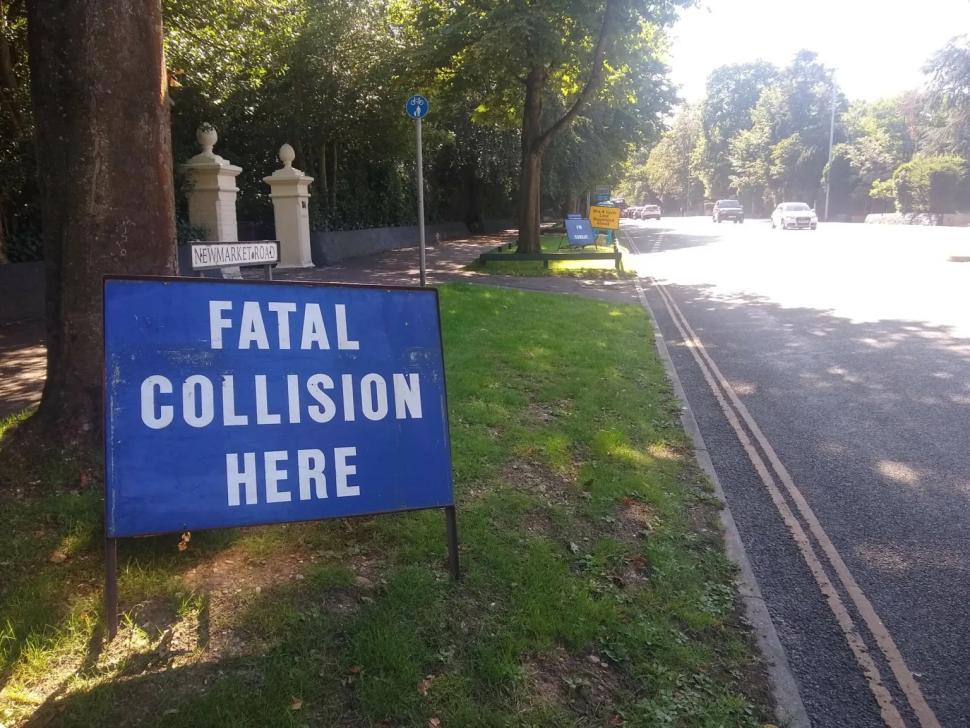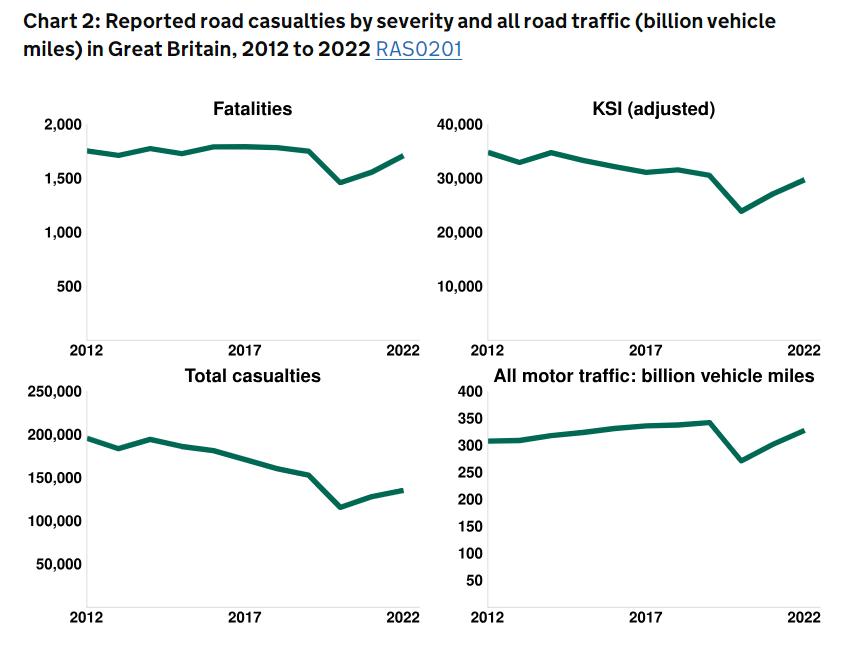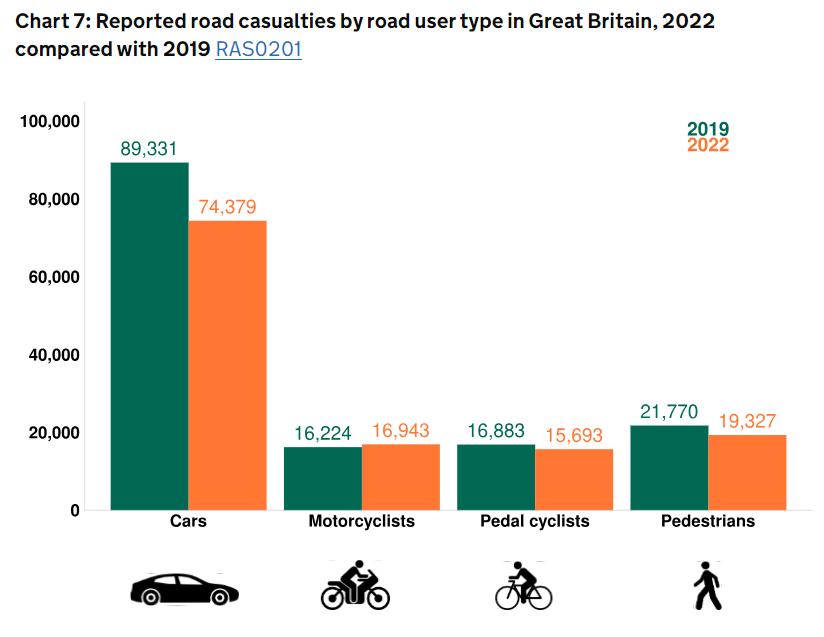- News
- Reviews
- Bikes
- Components
- Bar tape & grips
- Bottom brackets
- Brake & gear cables
- Brake & STI levers
- Brake pads & spares
- Brakes
- Cassettes & freewheels
- Chains
- Chainsets & chainrings
- Derailleurs - front
- Derailleurs - rear
- Forks
- Gear levers & shifters
- Groupsets
- Handlebars & extensions
- Headsets
- Hubs
- Inner tubes
- Pedals
- Quick releases & skewers
- Saddles
- Seatposts
- Stems
- Wheels
- Tyres
- Tubeless valves
- Accessories
- Accessories - misc
- Computer mounts
- Bags
- Bar ends
- Bike bags & cases
- Bottle cages
- Bottles
- Cameras
- Car racks
- Child seats
- Computers
- Glasses
- GPS units
- Helmets
- Lights - front
- Lights - rear
- Lights - sets
- Locks
- Mirrors
- Mudguards
- Racks
- Pumps & CO2 inflators
- Puncture kits
- Reflectives
- Smart watches
- Stands and racks
- Trailers
- Clothing
- Health, fitness and nutrition
- Tools and workshop
- Miscellaneous
- Buyers Guides
- Features
- Forum
- Recommends
- Podcast
news
 Newmarket Road fatal collision sign, Norwich (credit: Peter Silburn)
Newmarket Road fatal collision sign, Norwich (credit: Peter Silburn)Cyclist deaths fall to lowest level on record, but latest stats show overall road deaths up 10% in a year
Cyclist fatalities fell to the lowest number since records began, however the impact of increased journeys following two Covid-impacted years saw the overall number of deaths on Britain's roads return to pre-pandemic levels, up 10 per cent in a year.
Those are the findings of the Department for Transport's 'Reported road casualties Great Britain, annual report: 2022' which outlines and analyses the casualty statistics.
The total number of people killed on Britain's roads last year was 1,712, up 9.8 per cent on 2021, while 29,742 people were killed or seriously injured, an 8 per cent increase on the year before.
Owing to the fact that 2021 was a year impacted by a pandemic lockdown, the DfT compares the figures to 2019, "the most recent equivalent pre-pandemic year". Compared to that year, the number of people killed was down 2 per cent and the number killed or seriously injured down 3 per cent.
While there were tragically still 91 people who lost their life while cycling, the number is the lowest since records began, and is down from 111 in 2021. It is only the second time on record that the number of cycling fatalities was below 100, 2022 joining 2018 (when there were 99) in that regard.
It means cycling deaths fell by 18 per cent year on year, and by 13 per cent when compared with 2019. Cycling fatalities are down 24 per cent on 2012, and when looked at from the viewpoint of fatalities per billion miles travelled they have dropped by 15 per cent on 2019 and 34 per cent on 2012.
In the overall road casualty picture, cyclists made up 15,693 of the 135,480 casualties of all severities in 2022, a 5 per cent reduction on the 16,458 in 2021 and a 7 per cent reduction on 2019.
Overall, men accounted for 30,611 more casualties than women on Britain's roads, while 1,018 of the 1,711 fatalities occurred on rural roads, compared with 593 on urban roads and 100 on motorways. That despite, for total reported casualties, urban roads having almost double the number of reports than rural roads.
The DfT say the numbers, namely road fatalities per million population by country, make "our roads some of the safest in the world", Great Britain on a par with Japan and Denmark and just narrowly behind Iceland, Sweden and Norway.
Contributory factors for incidents, assigned by police officers who attend the scene, showed that loss of control, driver or rider failing to look properly, and driver or rider careless, reckless or in a hurry were the most common.
Dan is the road.cc news editor and joined in 2020 having previously written about nearly every other sport under the sun for the Express, and the weird and wonderful world of non-league football for The Non-League Paper. Dan has been at road.cc for four years and mainly writes news and tech articles as well as the occasional feature. He has hopefully kept you entertained on the live blog too.
Never fast enough to take things on the bike too seriously, when he's not working you'll find him exploring the south of England by two wheels at a leisurely weekend pace, or enjoying his favourite Scottish roads when visiting family. Sometimes he'll even load up the bags and ride up the whole way, he's a bit strange like that.
Latest Comments
- Secret_squirrel 1 hour 47 min ago
Um...no. Spitting is grim and there is never any excuse.
- Another_MAMIL 4 hours 43 min ago
Q36.5 Gregarius Essential Bib Knickers fit the bill: 3/4 length bib tights for warm weather.
- Rendel Harris 4 hours 54 min ago
Jolly good. Only it hasn't been and it is still a public bridleway. Feel free to look it up.
- jaymack 5 hours 44 min ago
"...it feels more like a £100+ jersey". It's almost as if cycling apparel is over priced.
- mike the bike 6 hours 56 min ago
I've had a few Lezyne bits and bobs over the years and while it's true I've never bothered to return anything under warranty, I've had a couple of...
- mark1a 5 hours 59 min ago
There's a transition period. For the benefit in kind (BIK) tax to the employee, it will be treated as a goods vehicle as it is now (rather than a...
- hawkinspeter 7 hours 8 min ago
Parents say East Bristol Liveable Neighbourhood makes roads '100 times safer' for children:...
- mdavidford 7 hours 14 min ago
Isn't basically all carbon recycled? From stars?
- velodinho 8 hours 30 min ago
As witnessed at so many infrastructure improvement projects similar to this one, all those who object should ignore the consultation and pray at...
- Nagai74 10 hours 18 min ago
It's a DLO to those in the trade.






Add new comment
18 comments
The last graph of top contributory factors - what is "loss of control" doing on there?! That's not a contributory factor - that's an outcome, from things like using a phone while driving, for example.
Neither people nor cars randomly just "lose control", the loss of control happens for a reason.
The vast majority of reduction in KSI's over the last 20-30+ years is for Motor vehicle occupants.
Rigid passenger safety cells, crumple zones, better quality of steel, Anti skid braking, more air bags than a roll of bubble wrap, seatbelt laws, a squadron of Air ambulances, major advances in trauma care.
All this has led to the reduction in KSI's, not safer driving. I feel more at risk today than 20 years ago.
From my observations, I would say the minority of lethally reckless drivers has increased in recent years. Their lives are being saved by all the new technology listed above. Perhaps, because they feel so safe in their cars is the reason why they drive in this manor?
I've not got a detailed analysis but this sounds about right. When stats change / "improve" it's often:
1) Change in how stats are recorded or "coded" e.g. "we stopped looking for crimes - hey presto! No crimes!" or "As the car did not hit you logically you are not a victim, merely a witness. Which just happens to place less burden on us and makes some numbers better..."
2) Unrelated changes. As you note cars have become much safer for their occupants and more forgiving to drive. Also, over a longer period the roads have become "safer" due to those not in motor vehicles realising they don't want to share them with motor vehicles. Then there have been safety improvements which compromise in other ways. So safe pedestrian architecture like dark underpasses with poor sight lines and large foot bridges over roads. These are certainly safer in terms of motor traffic collisions (up to a point - some people might think "stuff that" and try to run across the road for a more direct route...) However these are neither "socially safe" nor convenient... which also gives people another nudge not to make that journey without their car!
Yet again, compare and contrast with a different ethos - the Dutch Sustainable Safety philosophy (video here). This has less emphasis on prioritising the motorist, because motoring is a very inefficient mode with serious impacts on other modes. (Both literally and in terms of suppressing use of them). It puts safety at the top but also emphasises working with human nature because we are humans. Humans find certain things inconvenient and avoid them, get impatient, predictably make mistakes, will tend not to follow rules they don't understand or appreciate, like to travel socially, will avoid certain situations (cycling in heavy traffic, going through dark underpasses with places people could hide) etc.
While the stats for 2022 aren't great, it's worth remembering that road deaths in 2022 were about 20% of those for 50 years earlier. A lot of people think back to the good days when the roads were safer. Well that certainly wasn't 1972.
see other entry...
A lot of pedestrians were killed back in the 1970s. Speeding and drunk driving were rife and cars had terrible brakes. Yes, occupant protection was poor for motor vehicles and hardly anyone bothered with seatbelts. I don't know the KSI stats for cyclists but I remember reading the figures for pedestrians in 1972, the UK's worst year for road casualties, and they were horrific. The younger brother of a friend of mine was knocked down and killed by a car that year on the way to school.
One example of very, very many, where cyclists have been injured in a RTC and the Police have not recorded this incident.
See this youtube clip https://youtu.be/hRYTiAGEbjw?feature=shared
The Police attended and told the cyclist "it's a civil matter"
One KSI not in the RRCGB data. If the collision is not recorded on a MG/NSRF form, it does not show in the RRCGB statistics.
If you view the Hospital A&E admissions data, you will find a huge disparity between the RRCGB cycling casualty statistics, and the number of cyclists attending A&E with injuries. It would not surprise me if some cyclists fatally injured were also missed off the RRCGB data.
duplicated
I thought cycling rates in the UK were dropping again, hasnt that been CyclingUKs gripe about government funding recently?
So why wouldn't you expect to see the KSI numbers also start dropping?
Has Nigel hacked Road.cc's portal?
duplicated
Lies, damn lies and Road Casualty Stattistics.
Here is a graph the Cyclists Casualties for all severities.
Tell me what happened between 1999 and 2002? Did cycling becoming significantly more safer? Or did the Police stop attending and recording these personal injury collisions?
I think this is the result of increased, good quality, cycling infrastructure and a rise in the popularity of cycling in the areas that have benefitted from it. At the moment, that seems to be mostly London.
The trend is welcome. But whilst I'm sure it is far safer now to cycle in parts of London with this good quality infrastructure, in areas that have seen no new infrastructure (like where I ride), it doesn't feel any safer to ride a bike than it did 10 years ago.
Duplicate post.
Deaths on Urban Roads down by 9% is good news. Further LTN are required to bring this down even more.
Oh wait, what's that? The Unelected and in hock to big oil "Prime Minister" wants to end the "war on motorists" and strip local councils of power. Well I suppose Tories do, what Tories always do: rule for the rich and their shareholders.
From a trusted news source: https://www.theguardian.com/politics/2023/sep/28/rishi-sunak-expected-to...
Yes, and on top of that Keir Starmer wanted London Mayor Sadiq Khan to reverse the ULEZ expansion, because he saw it as a vote loser, and the reason why Labour lost in Uxbridge by election.
Please don't think Labour will be any better, they are also chasing the motoring voters.
"Cyclist fatalities fell to the lowest number since records began in 2022"
Might want to re-word that: doesn't seem like much of a news story.
I was thinking of saying the same ...
"Cyclist fatalities fell to the lowest number since records began in 2022..."
depending on how anyone reads that it could sound like record keeping actually started in 2022...
("... records began in 2022...")
... which makes the whole point (at this time in 2023) meaningless.